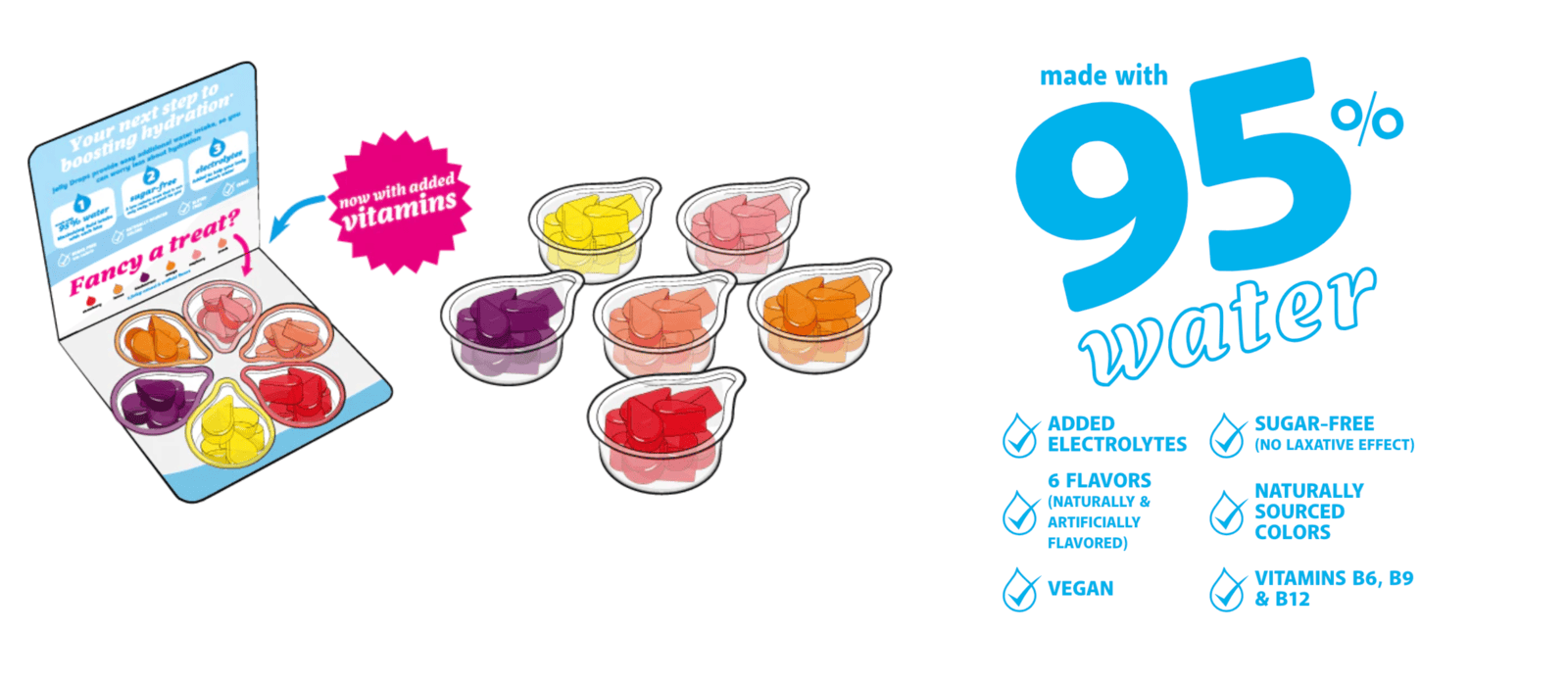Caregiving, Dementia and hydration
Hydration is a critical component of overall health, but it can pose significant challenges for individuals with dementia. Dehydration can lead to a host of health issues, including increased confusion, higher risk of falls, urinary tract infections, and reduced effectiveness of medications. The cognitive impairments associated with dementia can make it difficult for individuals to recognize their own thirst or remember to drink water. This challenge is compounded by difficulties in communication and physical dexterity, making traditional hydration methods often ineffective and frustrating for both patients and caregivers.
Introducing Jelly Drops
Jelly Drops offer an innovative solution to this problem. Invented by Lewis Hornby, inspired by his grandmother Pat who had dementia, Jelly Drops are bite-sized, hydrating sweets designed to make it easier and more enjoyable for people with dementia to stay hydrated. Each drop is 95% water and contains added electrolytes and vitamins, making them not only hydrating but also nutritious (Jelly Drops) (Alzheimer's Society).
How Jelly Drops Work
Jelly Drops are designed to look and taste like regular candy, which makes them appealing and easy to consume. Their bright colors and fruity flavors encourage individuals to eat them independently, which can help maintain their hydration levels without the need for constant reminders or assistance. The solid yet smooth texture is easy to handle and chew, and the lack of a liquid center eliminates the risk of spills and the need for straws or cups (Dementia Connect) (Alzheimer Europe).
The Benefits of Jelly Drops
- Promotes Independence: The design of Jelly Drops encourages self-consumption, which helps preserve the dignity and autonomy of individuals with dementia. They can enjoy these treats just like anyone else, reducing any potential stigma associated with their condition.
- Easy to Use: The finger-food format of Jelly Drops makes them accessible for those with dexterity issues, a common problem in elderly individuals and those with dementia. They do not require any special equipment or assistance to consume
- Nutritional Support: Beyond hydration, Jelly Drops also provide essential vitamins such as B6, B12, and folic acid, contributing to overall health and potentially improving cognitive function and immune support (Jelly Drops).
- Wider Acceptance: Care homes and healthcare providers have adopted Jelly Drops due to their ease of use and effectiveness. They are also available for purchase by individuals and families, making them a versatile tool for a wide range of settings.

The Impact and Future of Jelly Drops
Since their launch, Jelly Drops have made a significant impact on the lives of many individuals with dementia and their caregivers. The positive reception and numerous success stories highlight the effectiveness of this innovative approach to hydration. As they continue to evolve, the team behind Jelly Drops is exploring additional health benefits and broader applications, potentially addressing other nutritional needs in the future.
Jelly Drops represent a compassionate and practical solution to the problem of dehydration in individuals with dementia. By turning a critical health necessity into an enjoyable experience, they offer a way to enhance the quality of life for those affected by dementia and ease the burden on caregivers. For more information on how to obtain Jelly Drops and integrate them into your care routine, visit their official US website.
By leveraging simple, user-friendly innovations like Jelly Drops, we can make meaningful strides in improving the daily lives of those living with dementia.

